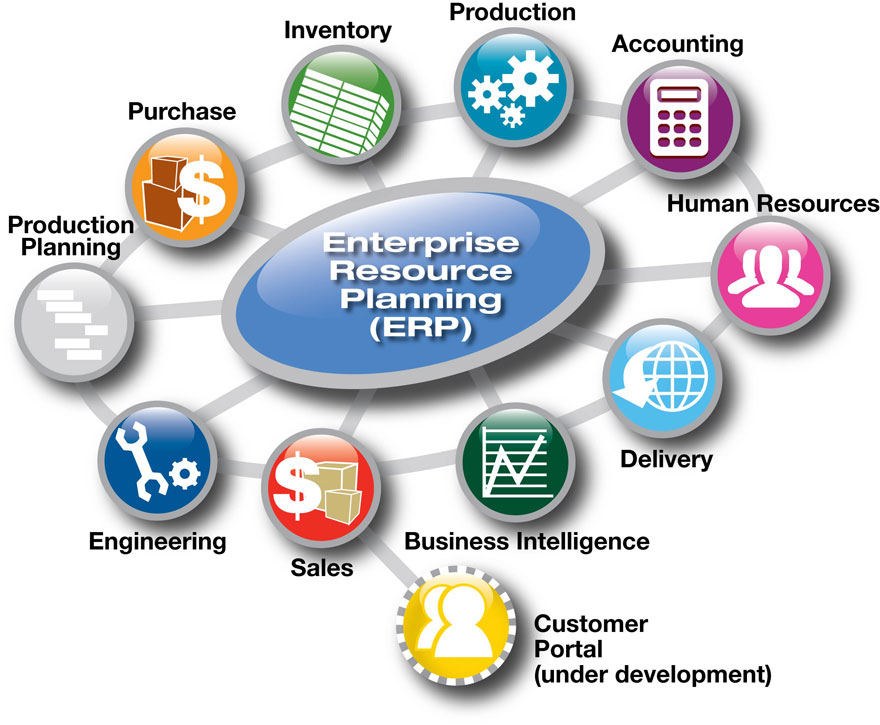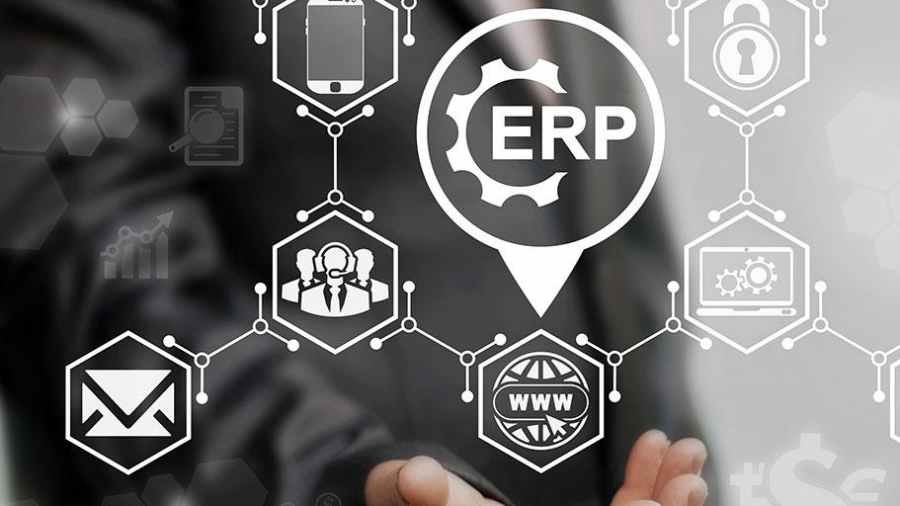Before I get into the technical part let me explain in layman terms what Enterprise Resource Planning (ERP) really means and does your company require it?
Well, if you are the kind of entrepreneur who started out small, but over time your business grew out to be a huge success and now there is more demand and you need to keep an exact track of the inflow and outflow of your business so that you do not run out of stock. Or are you trying to find the process flow inside your company in order to understand which section takes too much to produce while other section waits idle?
Well then look no further, ERP is your answer. ERP helps to identify the work flow in your company and help production based on the requirements.
Let’s talk business now, about how it affects your business
ERP is a cross-functional enterprise system driven by an integrated suite of software modules that supports the basic business processes of a company.
The goal of any enterprise is to “get”, “keep” and “grow” the number of customers.
“GET”– Bring in profitable customers.
“KEEP”– Absorb profitable customers longer.
- Win back, profitable customers.
- Eliminate unprofitable customers.
“GROW”-Upsell additional products in the solution.
- Cross-sell the products to the customers that we have developed.
- Reduce services and operations cost.

Typical Business Process:
- A typical business has many departments/units.
- these departments continuously communicate and exchange data with each other.
- The success of any organization lies in effective communication and data exchange within the departments as well as associated third party such as vendors, outsources and customers.
The Benefits of using ERP:
- Accurate customer relationship management
- Up-to-dateinformation about the product available 24/7 on the web-store: number of items, description, price, quality etc.
- Total online control of inventory data, item movement, sales, shipment tracking, order fulfilment, invoices, payment, accounting
- Availability of a centralized system with a real-time data reflection of the situation on all levels of the system
- Manual entry and error reduction
- Accurate product information
- Full customer data and history
- Good reporting system
Disadvantages:
- Customization will be an issue.
- High ERP switching cost can increase the ERP vendors negotiating power, which increases the support, maintenance and upgrade expenses.
- ERP can cost more than less integrated or less comprehensive solutions.
- Extensive training requirements take resources from daily operations.
- Compatibility of an ERP system can a colossal task
- Requires a lot of time, planning and money.
Understanding digital transformation is not a complex process, it starts with understanding your business. With technology investment stemming organically from that, and a focus around us, you’re prepared for the future.

